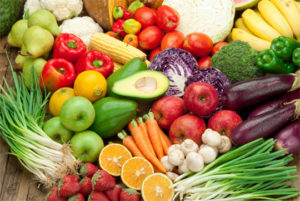 Reaching for the broccoli is typically not the first thing you do when experiencing back pain. The average American diet has no more than 10 percent of calories coming from fruits and vegetables. But if you’re experiencing back pain, particularly pain caused by inflammation, you may want to rethink your diet. Reducing inflammation is easier—and tastier—than you may think.
Reaching for the broccoli is typically not the first thing you do when experiencing back pain. The average American diet has no more than 10 percent of calories coming from fruits and vegetables. But if you’re experiencing back pain, particularly pain caused by inflammation, you may want to rethink your diet. Reducing inflammation is easier—and tastier—than you may think.
The most common causes of back pain are mechanical; however, inflammation frequently accompanies mechanical problems – for example, in the setting of a strained ligament, disc degeneration, or a herniated disc. Therefore, supplementing the treatment of back pain with the right nutrients can be helpful.
Inflammatory back pain is classically associated with myofascial pain, rheumatoid arthritis, or ankylosing spondylitis and is typically worse at rest and relieved by activity. A common complaint with this condition is early morning stiffness.
Foods high in saturated fats, trans fats, simple sugars, and white flour can trigger inflammation throughout our bodies, causing joint swelling and back pain. So, instead of reaching for processed food, fast food, or food high in saturated fats, try choices that will actually make you more comfortable.
Begin by fighting inflammation and cellular damage with vegetables—the greener the better. Try kale, spinach, and collard greens for a high dose of antioxidants, flavonoids, carotenoids, and vitamin C. Pair your vegetables with foods rich in healthy fats, such as long-lasting inflammation-fighter omega-3 fatty acid. Cold water fish including salmon and halibut, nuts such as almonds and walnuts, and flaxseed are all dense with omega-3s.
Spice up your diet with anti-inflammatory herbs and spices such as green tea, cumin, and chili pepper. Turmeric, a natural spice commonly found in Eastern cultures, contains a powerful compound called curcumin that benefits those with chronic pain. Studies have shown that its inflammation-reducing effects are one of nature’s strongest aids for chronic back pain and joint pain.
If you’ve had success healing musculoskeletal pain manually or through exercise, changing your diet may not be necessary. But to maintain overall health and wellness, increasing your intake of anti-inflammatory foods can help also prevent chronic disease.
Have you tried an anti-inflammatory diet? Come visit my Facebook page and discuss your experiences.









